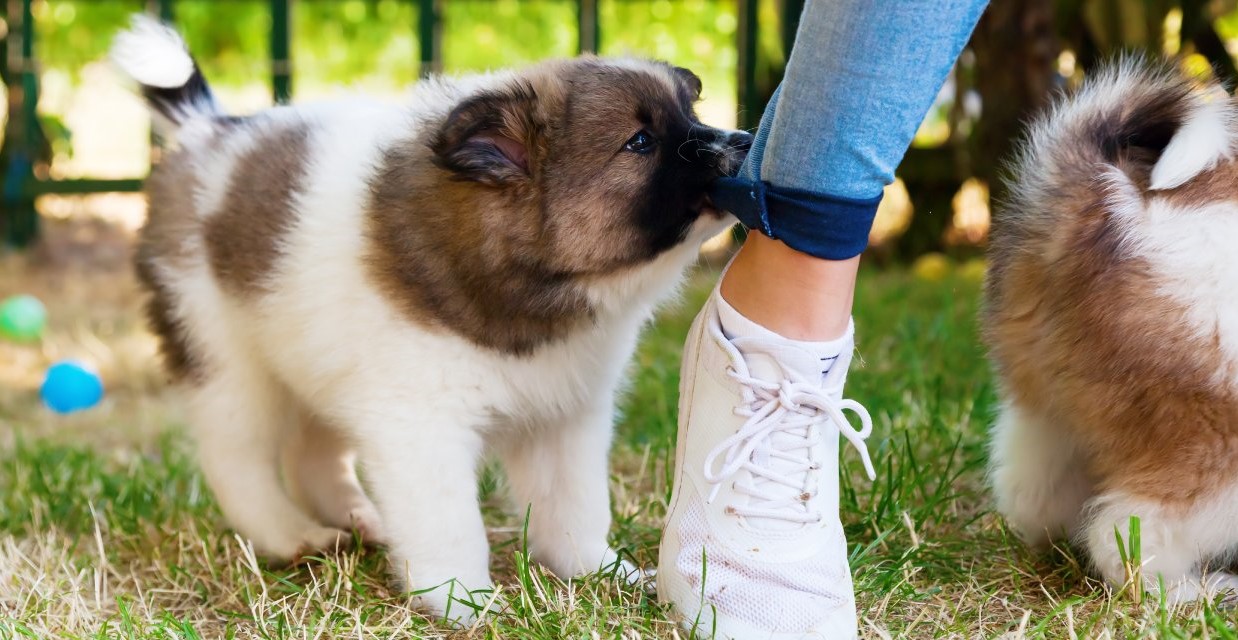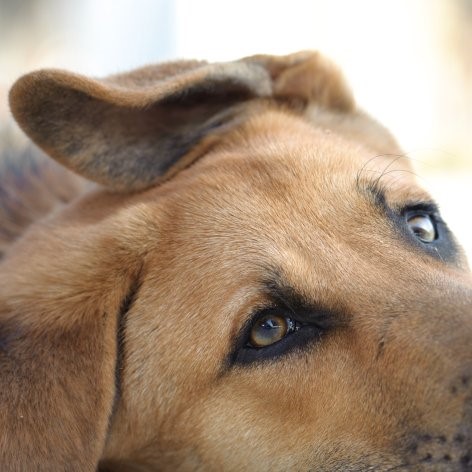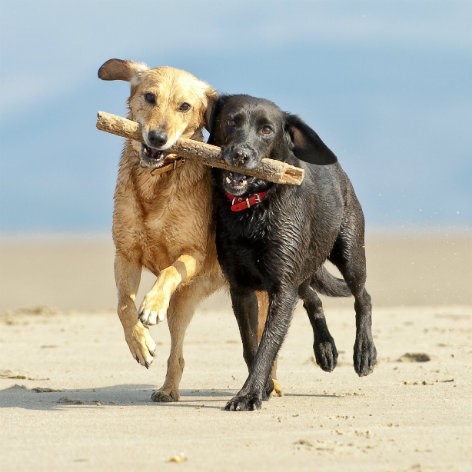When puppies are born, their eyesight and hearing is not yet fully developed and a lot of their behaviour is ‘pre-programmed’ as part of their survival instinct.
During the transition phase of a puppy’s development, which is days 11-21, puppies develop their senses of vision and hearing.
It is important to provide puppies with an interesting environment so that their nervous system can develop as best as possible1.
When do puppies start to see?
Unlike human babies, puppies do not open their eyes immediately after birth and their eyes remain closed until they are 8-16 days old (there is some individual variation here).
When puppies first open their eyes, they will have a bluey-grey appearance and are cloudy compared to an adult dog’s eyes. In addition to this, their ability to control how much light gets into their eyes does not fully develop until 4 weeks of age (known as the pupillary light reflex)2. So, it is important to keep the lights fairly dim until then and avoid direct sunlight during this time.
Puppies younger than 4 weeks of age have a reduced ability to protect their eyes with a blinking reflex2, so they are at an increased risk of damage to the surface of their eyes (known as the cornea). This is important when managing your puppy’s environment to reduce the risk of injury.
A puppy’s vision and ability to see distance continues to develop until 8 weeks of age and by 16 weeks, a puppy’s eyesight is fully developed for distance.
When do puppies start to hear?
Puppies cannot hear properly when they are born because, like their eyes, their external ear canals are closed at birth. Between days 12-14, the external ear canals open and puppies will tend to respond to sounds from 2 weeks of age2.
At 3-4 weeks of age, healthy puppies can generally hear very well. At this time, they can even be desensitised to sounds that might be a bit scary to an older puppy or adult dog2.
So, it is a good idea to gently expose puppies to various sounds during this stage of their hearing development.
If you notice that your puppy is having difficulty seeing or hearing after 4 weeks of age, be sure to organise a veterinary assessment to ensure there are no problems with their sensory development. It’s important that puppies develop to their full potential and most of all, that they remain safe while exploring the new world around them during this exciting time in life.
References:
1. Luescher A. Puppy Development and Problem Prevention. Western Veterinary Conference 2004, Purdue University, USA.
2. Pierce B. Pediatrics: What’s Normal in the First Year? Atlantic Coast Veterinary Conference 2014, Regional College of Veterinary Medicine, USA.








